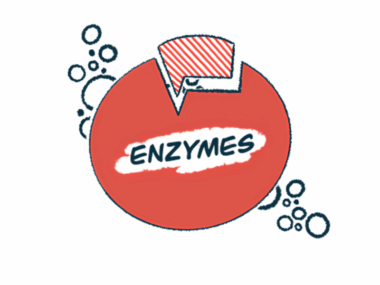2 Trials to Test Oral BIIB122/DNL151 in Slowing Parkinson’s Progression
Written by |

Biogen and Denali Therapeutics are planning to launch two late-stage clinical trials to further evaluate the potential of their investigational oral therapy BIIB122/DNL151 in treating people with Parkinson’s disease.
The Phase 3 and Phase 2b trials, expected to commence this year, will be led by Biogen and follow promising results from two previous Phase 1 clinical studies, according to a Denali corporate update.
“We are looking forward to a high impact year in 2022, having accomplished several clinical and regulatory milestones in 2021 as well as further validation of our TV platform for delivery of biotherapeutics to the brain,” said Ryan Watts, PhD and the CEO of Denali Therapeutics.
Parkinson’s does not have a clear genetic cause, but research suggests that mutations in the gene that codes for the protein leucine-rich repeat kinase 2 (LRRK2), also known as dardarin, may increase a person’s disease risk. Mutations in the LRRK2 gene, which broadly cause an overactivation of LRRK2, are associated with both familial and sporadic Parkinson’s disease, but patients without these mutations also show higher levels of active LRRK2 protein.
While the role of LRRK2 is not fully clear, a body of research suggests that its aberrant activation affects transit within cells, particularly the activity of lysosomes, subcellular compartments responsible for breaking down and recycling excess material and damaged cell parts. Abnormalities in lysosome activity may contribute to neurodegeneration.
BIIB122/DNL151, co-developed by Denali and Biogen, is a selective small molecule designed to cross the blood-brain barrier and block LRRK2 activity, specifically in the nervous system. The companies believe that doing so could restore lysosomal function and potentially slow Parkinson’s progression. The blood-brain barrier, often called the BBB, is a highly selective membrane that shields the central nervous system (brain and spinal cord) from potential insults like viruses carried in the bloodstream.
The planned global trials — the Phase 3 LIGHTHOUSE and the Phase 2b LUMA study — will evaluate BIIB122/DNL151 in patients with and without LRRK2 mutations.
LIGHTHOUSE aims to enroll about 400 Parkinson’s patients with LRRK2 mutations to test BIIB122/DNL151’s effectiveness, with treatment running for at least 96 weeks (about 1.8 years). The LUMA Phase 2b study will recruit about 640 patients without LRRK2 mutations. This trial, designed to potentially support a request for BIIB122’s regulatory approval, will dose selected participants for at least 48 weeks (around 11 months).
Both trials are reported to set as their main goal (endpoint) changes from the study’s start in patients’ scores on the Movement Disorder Society Unified Parkinson’s Disease Rating Scale (MDS-UPDRS). This scale assesses Parkinson’s motor and non-motor symptoms, including cognitive impairment, sleep problems, speech, and facial expression.
Biogen and Denali are also continuing to work with Centogene in identifying patients with LRRK2 mutations, including those enrolled in the Rostock International Parkinson’s Disease (ROPAD) Study. This global observational study, led by Centogene, is evaluating the role of genetics in Parkinson’s disease by analyzing the genetic background of the 10,000 patients enrolled as of May 2021.
ROPAD, through tests given over two years, aims to identify 1,500 patients with LRRK2 mutations.
The Phase 1 clinical study in healthy volunteers (NCT04557800) supported the potential treatment’s properties and tolerability, while the trial in Parkinson’s patients (NCT04056689) showed that oral doses of DNL151 — both early studies were sponsored by Denali — safely lowered the activity of disease biomarkers that reflect LRRK2 activity.
A dose-dependent reduction was also seen in the levels of urine lysosomal lipid 22:6-bis[monoacylglycerol] phosphate (BMP), a biomarker of lysosome function.
DNL151 was well-tolerated across a range of doses delivered for up to 28 days, with no serious side effects reported in either Phase 1 trial.
“We are well positioned to deliver in 2022 with our dedicated team, our BBB-crossing platforms and our diversified portfolio of Denali owned and strategically partnered assets. We continue to build our clinical manufacturing and commercial capabilities as well as expand our global footprint,” Watts said.
He announced these plans for the LIGHTHOUSE and LUMA trials and other company updates in a presentation at the virtual 40th Annual J.P. Morgan Healthcare Conference held Jan. 10–13.






